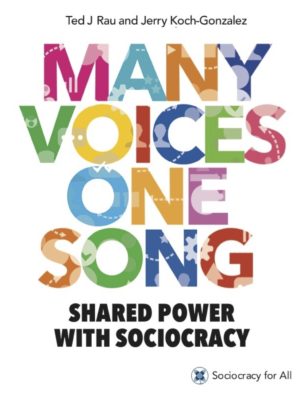Sociocracy is a governance method based on collaboration, self-organization, and distributed authority. It is designed for transparency, inclusiveness, and accountability. Democracy values freedom and equality but doesn’t have a governance structure guaranteed to ensure them. A Sociocratic Democracy uses the methods of sociocracy to achieve the values of democracy creating a practical and effective way to organize. This site is about sociocracy and the ways in which it can help democracy achieve its highest goal: freedom and equality for all, finally.
 De School in The Netherlands was founded using the sociocratic organization method under the guidance of Annewiek Reijmer of the global center, the Sociocratisch Centrum.
The school has become famous in Holland because it offers a 50-week school year in order to meet parents needs for childcare as well as education for their children. The children, as young as six, work with the parents, the teacher, and an outside expert to evaluate the student’s progress… Read More . . . “De School, Zandvoort, The Netherlands”
De School in The Netherlands was founded using the sociocratic organization method under the guidance of Annewiek Reijmer of the global center, the Sociocratisch Centrum.
The school has become famous in Holland because it offers a 50-week school year in order to meet parents needs for childcare as well as education for their children. The children, as young as six, work with the parents, the teacher, and an outside expert to evaluate the student’s progress… Read More . . . “De School, Zandvoort, The Netherlands”
